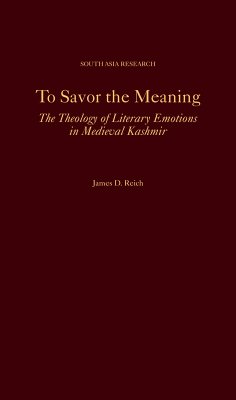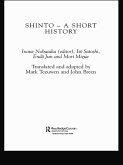Medieval Kashmir in its golden age saw the development of some of the most sophisticated theories of language, literature, and emotion articulated in the pre-modern world. These theories, enormously influential on the later intellectual history of South Asia, were written at a time when religious education was ubiquitous among intellectuals, and when religious philosophies were hotly and publicly debated. It was also a time of deep interreligious influence and borrowing, when traditions intermixed and intellectuals pushed the boundaries of their own inheritance by borrowing ideas from many different places-even from their rivals.
To Savor the Meaning examines the overlap of literary theory and religious philosophy in this period by looking at debates about how poetry communicates emotions to its readers, what it is readers do when they savor these emotions, and why this might be valuable. Focusing on the work of three influential figures-Anandavardhana [ca. 850 AD], Abhinavagupta [ca. 1000 AD], and the somewhat lesser known theorist Mahimabhatta [ca. 1050 AD]-this book gives a broad introduction to their ideas and reveals new, important, and previously overlooked aspects of their work and their debates. James D. Reich places these pre-modern intellectuals within the wider context of the religious philosophies current in Kashmir at the time, and shows that their ideas cannot be fully understood in isolation from this broader context.
Dieser Download kann aus rechtlichen Gründen nur mit Rechnungsadresse in A, B, BG, CY, CZ, D, DK, EW, E, FIN, F, GR, HR, H, IRL, I, LT, L, LR, M, NL, PL, P, R, S, SLO, SK ausgeliefert werden.









